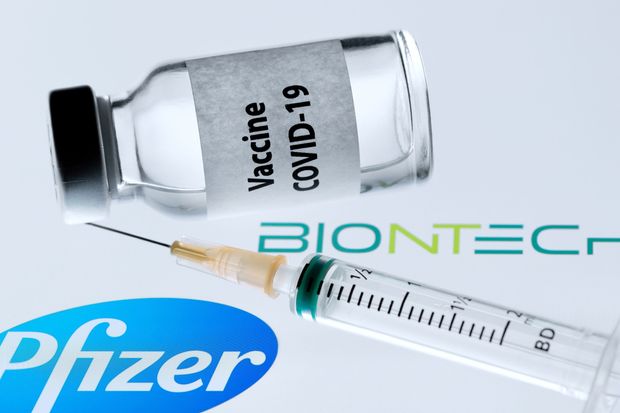JOHANNESBURG, (Reuters) – Two doses of Pfizer-BioNTech’s COVID-19 vaccine appear to have given 70% protection against hospitalisation in South Africa in recent weeks, according to a major real-world study which suggests weaker efficacy against the new Omicron variant.
The study released today by South Africa’s largest private health insurance administrator, Discovery Health, was based on more than 211,000 positive COVID-19 test results. Around 78,000 of those results from Nov. 15 to Dec. 7 were attributed to Omicron.
The 78,000 results are not confirmed Omicron cases, meaning the study cannot offer conclusive findings about the variant labelled “of concern” by the World Health Organization and reported in more than 60 countries.
South African scientists have so far confirmed around 550 positive tests as being Omicron, with the variant accounting for 78% of sequences from November, more than the previously dominant Delta variant.
South Africa alerted the world to Omicron late last month, triggering alarm that it could cause another surge in global infections, and leading to the imposition of travel restrictions on southern Africa. South Africa’s daily infections have since risen to around 20,000 in recent days.
The findings from a real-world analysis are some of the earliest on protection against Omicron outside of lab studies, which have shown reduced neutralising activity against the variant.
Based on analysis by Discovery’s clinical research and actuarial teams, and in collaboration with the South African Medical Research Council (SAMRC), the study calculated that two doses of Pfizer-BioNTech offered 70% protection against hospitalisation compared with the unvaccinated during the recent surge in cases and 33% protection against infection.
It said this represents a drop from 80% protection against infection and compares with 93% efficacy against hospital admission during South Africa’s outbreak of the Delta variant, which is the globally dominant variant and considered to be the most infectious to emerge during the pandemic.
Discovery cautioned that the study’s findings should be considered preliminary.
Glenda Gray, SAMRC president, said it was however encouraging that the Pfizer-BioNTech vaccine appeared to be offering good protection against severe disease and hospitalisation.
South Africa is using the Pfizer-BioNTech and Johnson & Johnson vaccines in its COVID-19 immunisation campaign, with more than 20 million Pfizer doses administered so far.
J&J and the SAMRC are conducting a large real-world study of J&J’s vaccine, and recent analysis has shown no deaths from Omicron, Gray said.
“So that’s the good news, it shows again that the vaccine is effective against severe disease and death,” she said.
With 70% or more of the South African population estimated to have been exposed to COVID-19 over the past 18 months, high estimated levels of antibodies in the population might be skewing the data.
“This could be a confounding factor for these hospital admission and severity indicators during this Omicron wave,” Ryan Noach, chief executive of Discovery Health, said in a briefing on the study.





